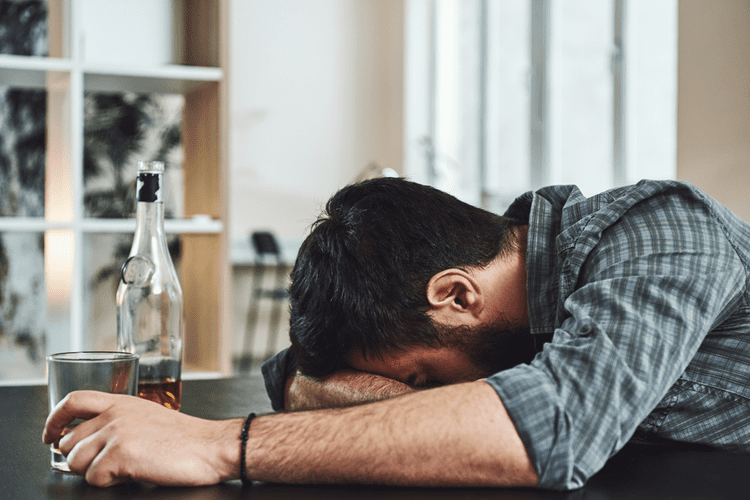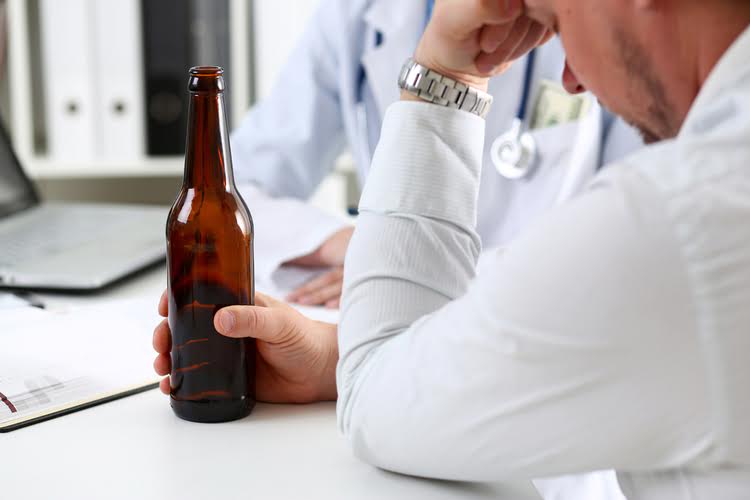Many effective treatments exist for alcohol use disorder, including psychotherapy, peer support groups such as Alcoholics Anonymous and SMART Recovery, and medications. I’m a clinical psychologist and neuroscientist, and for the past 15 years, my research has focused on evaluating medications for alcohol use disorder. Communities by offering self-care, relaxation and therapeutic art and play sessions, support groups and trainings for mental health professionals. As part of its peer-led model, many of the staff have experienced mental health issues themselves. Offer health and well-being programs that promote work-life fit and teach functional coping skills. Programs that promote and support employee well-being may help employees with their recovery efforts.
Step by Step
Recovery from addiction is not only possible, it is the rule, rather than the exception. S. National Survey on Drug Use and Health, more than 75 percent of people addicted to alcohol or drugs recover—their condition improves and substance use no longer dominates their life. It is often a long and bumpy path, and relapse is nearly inevitable—but that doesn’t spell the end of recovery. There are coping strategies to be learned and skills to outwit cravings, and practicing them not only tames the impulse to resume substance use but also gives people pride and a positive new identity that hastens recovery. The current report leverages data to examine the factors – such as spirituality, treatment, insurance coverage and social supports – that support recovery from substance use and mental health problems more clearly.
- Recovery from addiction is not a linear process, and increasingly, relapse is seen as an opportunity for learning.
- The FDA typically requires medications to demonstrate efficacy in at least two Phase 3 trials prior to approval for a new purpose.
- For years, the organization has relied on Eventbrite, an event management and ticketing website, to arrange its events.
- If you’re ready to make a positive change, here’s what you may want to know about the recovery process.
Strong legs help power summer activities: Hiking, biking, swimming, and more
Nearly one in 10 persons in the U.S. has recovered or is recovering from a substance use disorder. If you have addiction and you’d like to change your behavior, consider all the costs and benefits of the choices you could make. Don’t think only about the negative aspects of your object of addiction; think, too, about the benefits it offers. One important step to recovery involves understanding what you get from your substance or activity of choice, and how you might achieve the same benefit through other, less harmful means. Experts recommend doing an impromptu cost-benefit analysis by filling out a table such as Table 1. Helping a person recovering from an addiction can come down to helping them connect to treatment—if they’re not already doing so—and encouraging support groups like AA.
Develop and share clear and supportive workplace policies
- All Recovery accommodates people with any kind of addiction and its meetings are led by trained peer-support facilitators.
- Over time, reward circuits regain sensitivity to respond to normal pleasures and to motivate pursuit of everyday activities.
- Empowerment is another necessary mechanism of change; in psychological parlance it’s known as self-efficacy.
- Alcoholics Anonymous or AA is the original recovery program that brought the world the 12 steps of recovery.
A lot can be at stake in a relapse, including life itself; doing whatever is necessary to ensure a way out of high-risk situations is essential. Having a “parachute” ready for such eventualities takes a little preparation and knowledge that some situations (such as a social event or party) will in fact be high risk. Strategically avoiding an event, a person, or a situation with a polite excuse can yield lifesaving dividends, especially early in recovery. Yet one more acronym captures the skills people actually deploy to successfully navigate the tricky terrain of early recovery. When, for example, cravings hit, a helpful strategy is to self-negotiate a delay of use. This is a cognitive maneuver that doesn’t deny the possibility of future use, but rather, seeks to delay it.
- “Nobody recovered from addiction dead. My feeling is if we can keep people alive long enough, we know eventually the majority get recovery,” he said.
- Helping a person recovering from an addiction can come down to helping them connect to treatment—if they’re not already doing so—and encouraging support groups like AA.
- This group of people with lived experience advises the NIH HEAL Initiative on research directions and ensures that research takes into consideration input from people and communities the initiative aims to benefit.
- It gets in the way of recovery, self-acceptance, and accessing help when needed.
“Nobody recovered from addiction dead. My feeling is if we can keep people alive long enough, we know eventually the majority get recovery,” he said. While tragic, the 100,000 fatal drug overdoses last year actually claimed the lives of a tiny percentage of the 31.9 million Americans who use illegal drugs. “Things that I thought I would never gain again, through the process of recovery I have them all,” she said. “We are Sober House literally surrounded by people who are in recovery from a substance-use disorder, but we don’t know it,” Kelly said. Americans often see the more destructive side of addiction, drug crime, people slumped in doorways and family members who are spiraling downward. A separate study published by the CDC and the National Institute on Drug Abuse in 2020 found 3 out of 4 people who experience addiction eventually recover.

Otherwise, their behavior is at risk of cementing the problem in place. The endpoint is voluntary control over use and reintegration into the roles and responsibilities of society. Shortly after substance https://theseattledigest.com/top-5-advantages-of-staying-in-a-sober-living-house/ use is stopped, people may experience withdrawal, the onset of unpleasant physical and psychological symptoms —from irritability to shakiness to nausea; delirium and seizures in severe cases.

Importantly, it also reduces alcohol craving, likely through its effects on dopamine that is released in response to cues, such as the sight, smell and taste of alcohol. Naltrexone is effective for reducing heavy drinking but less effective for complete abstinence from alcohol. The condition is characterized by a pattern of heavy alcohol consumption with loss of control over drinking despite negative social, occupational or health consequences. The Black Mental Health Alliance offers confidential referrals to culturally competent mental health professionals who are in its database of licensed therapists.
The NIH HEAL Initiative also partners with NIDA to fund research within the Consortium on Addiction Recovery Science, a nationwide effort that focuses on research network-building initiatives. Put simply, these projects will benefit communities grappling with opioid misuse and overdose and other substance use disorders by rapidly advancing research aimed at providing effective recovery support services to people who need them. That is becoming a key metric for making these supports widely available through expanded public or private funding, or for linking the services to healthcare systems.